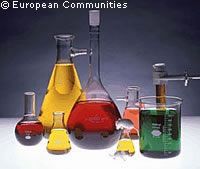ECVAM in vitro toxicity tests included in OECD testing recommendations
The Organisation for Economic Cooperation and Development (OECD) has endorsed four toxicity tests, developed by the European Commission's Joint Research Centre (JRC), which will significantly reduce the number of animals used to test chemicals. The in vitro tests were developed at the JRC's European centre for the validation of alternative methods (ECVAM), and comply with new OECD guidelines on testing the toxicity of chemicals. Chemicals must be adequately tested in order to identify potential hazards to human and animal health, and to the environment. The new OECD guidelines include the recommendation that testing previously done on animals should only be carried out on cell or tissue cultures. It is estimated that 15,000 animals are currently used every year in Europe in order to test for just two possible health effects of chemicals - skin corrosion and phototoxicity. Using in vitro testing methods will not only significantly reduce animal suffering, cutting the number of animals used in toxicity experiments by up to six per cent, but will also reduce costs to industry. Roughly 12 million euro is currently spent on these two animal tests in Europe every year, whereas an in vitro test using a reconstituted human skin model costs half the amount of an animal test. These new in vitro tests are the first to undergo full validation with the help of ECVAM. Their inclusion in the OECD's Guidelines for Testing of Chemicals, and the wide international acceptance that is inherent in this inclusion, is a major achievement for ECVAM. ECVAM is also actively participating in other OECD activities, including the revision of guidance material on the validation and international acceptance of new or updated test methods for hazard assessment.



